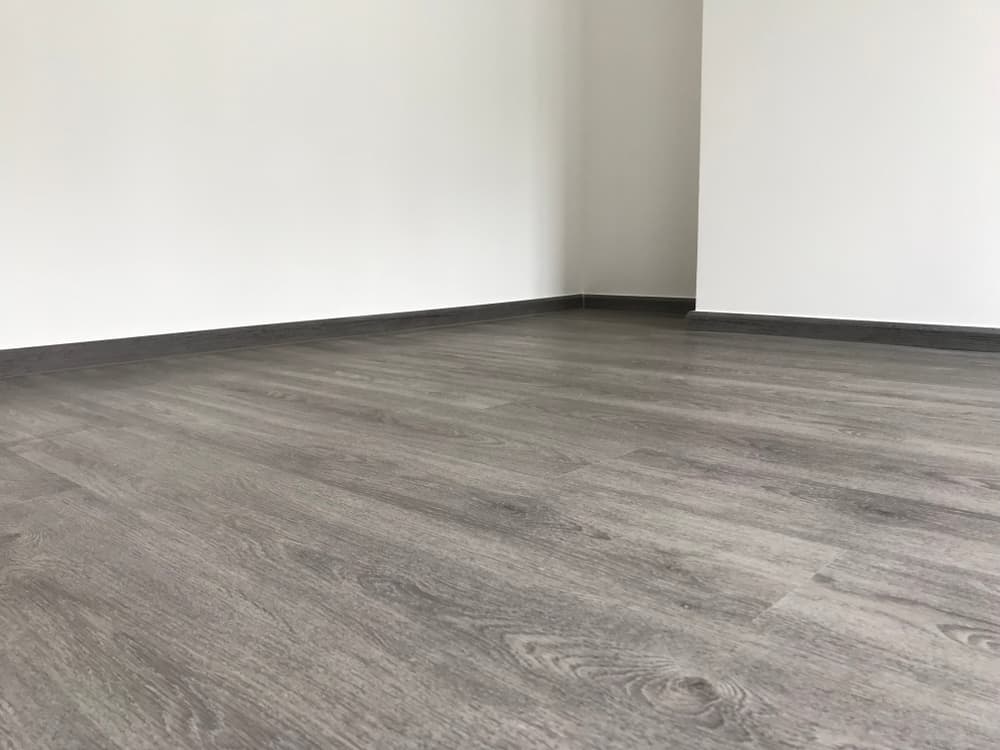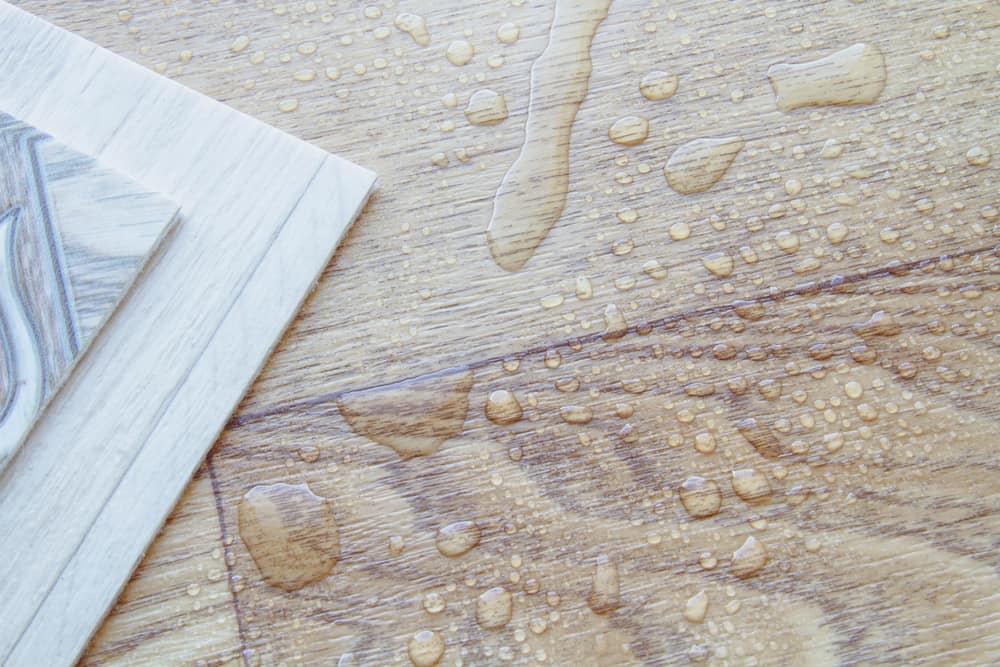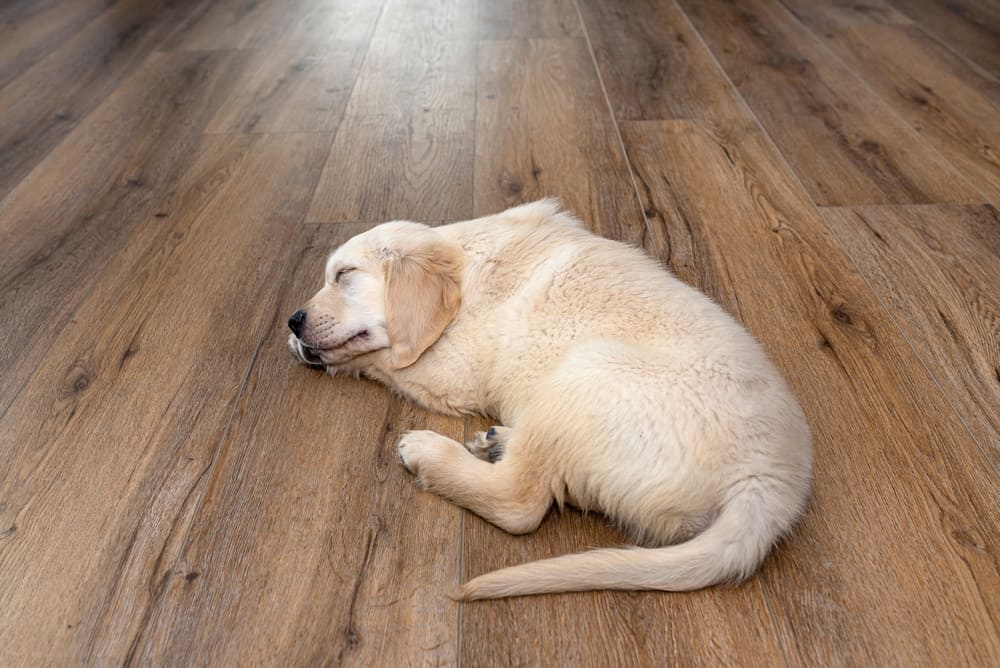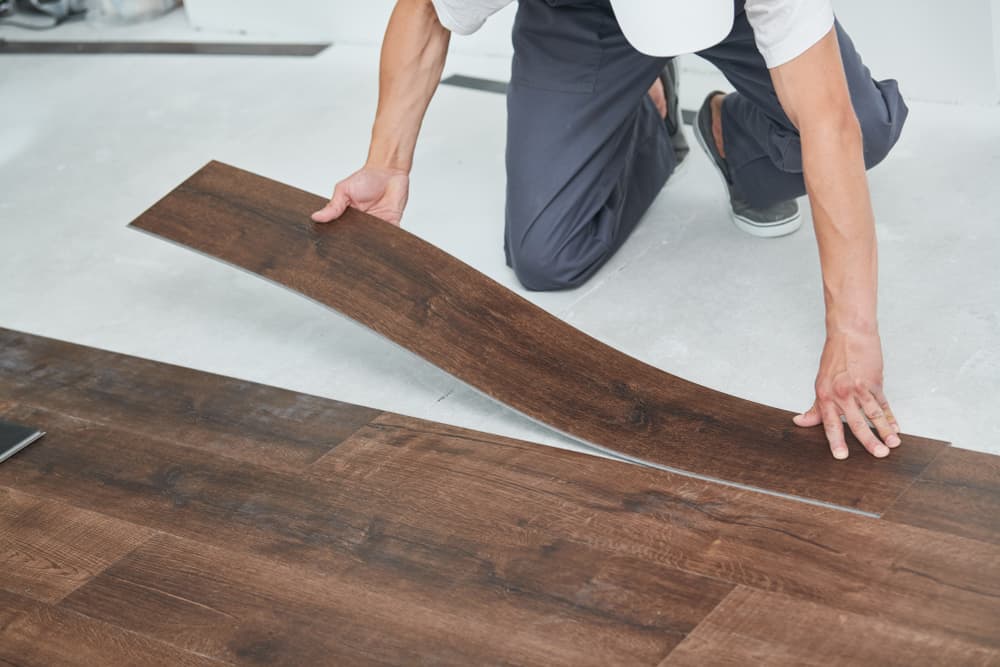Unlike unattractive old flooring options, modern vinyl plank flooring is a luxury combination of durable hard-surface and traditional resilient floorings. Therefore, you can equally use it in your home and commercial locations for a long.
Even though this option is resistant to dents and scratches, you probably wonder is vinyl flooring waterproof and want to know about its limitations in use. Believe it or not, it seems that you can get beautiful waterproof flooring, like a traditional wooden option. Let’s see.
Table of Contents
Vinyl Flooring
Vinyl is a durable synthetic material used for designing different flooring types. Their primary advantage is the four layers that provide durability and water resistance, increasing the possibilities of their use.
A bottom layer is typically made of foam or cork and underlays the flooring without installing another material as a base.
Then, a waterproof coating is designed to absorb water without compromising the floor integrity. You can recognize two waterproof layer types, including:
- WPC – Wood plastic composite flooring is a combination of wood and plastic
- SPC – Stone plastic composite flooring is a combination of stone and plastic
The third layer features an outer printed image resembling wood, stone, or marble. It is covered by a wear coat that protects flooring from damage.
Besides standard vinyl sheets, tiles, and planks, you can find luxury plank and tile variations nowadays. This vinyl flooring type contains six to eight layers, unlike four standard ones, including an extra protective transparent topcoat layer and a foamy cushion layer that increases floor comfortability.
Is Vinyl Flooring Waterproof?
The difference between waterproof and water-resistant flooring
Vinyl flooring typically offers significant moisture protection, but it is crucial to determine the difference between waterproof and water-resistant flooring options. You should choose a particular type, depending on your needs. For instance, your choice should fit kitchen, bathroom, and basement conditions.
Water-resistant vinyl floor – Such a vinyl floor can withstand the average moisture and spills, typical for every household.
In such conditions, you can expect your flooring to stay intact for a certain period, but you should wipe up water as quickly as possible. Unfortunately, this vinyl floor can’t hold up to a flooded basement after heavy rain or plumbing leaks.
Waterproof vinyl floor – This vinyl floor type that is made of an impenetrable material can take high moisture and standing spill liquid. This feature won’t depend on how long water remains on its surface.
Remember that this flooring is resistant to topical moisture, but its waterproof properties don’t refer to water under the floor. Plus, this floor is not flood-proof, so large amounts of water flooding it in a short period will pass through the unsealed cracks in vinyl and get beneath the waterproof floor surface.
Is vinyl flooring waterproof?
Answering this question can be tricky since you can find several different vinyl flooring types on the market with different characteristics. All of them are water-resistant, but only some models are entirely waterproof.
The crucial thing to know is that waterproof luxury vinyl flooring with a durable core is designed of 100% waterproof engineered vinyl. However, the installation quality will significantly affect the flooring water-resistance level.
For instance, luxury vinyl planks and tiles are waterproof, but the problem is that they are not made in one piece. Since it is necessary to stack the planks and tiles side by side, the flooring will have multiple seams between them.
In such a case, the incorrect installation will cancel the floor waterproofing, although the planks and tiles are made of waterproof material.
On the other hand, vinyl sheets come in a roll and have no seams, so they typically can withstand water despite the installation quality. Only remember that this vinyl flooring type is never waterproof but water-resistant.
Waterproof Vinyl Flooring Layers
The feature that makes vinyl flooring waterproof or water-resistant is a core coat, one of four vinyl flooring layers:
Wear layer
This layer protects the flooring from wear and scuffs, so you should pick out the vinyl that contains as thick a wear layer as possible. Its thickness increases the flooring’s resistance to damage. The recommended wear layer ratings are:
Good – The vinyl flooring is for residential use when the wear layer is 6 mil thick
Better – The vinyl flooring is for light commercial use when this layer is 12 mil thick
Best – The vinyl flooring is for high-traffic commercial use when the wear coat is 20 mil thick
* 1 mil equals 0.001 inches
Printed vinyl layer
This vinyl coat provides the printed decorative film between wear and core layers. It features desired patterns, making the vinyl surface look almost identical to wood, marble, stone, or other natural materials.
Waterproof (rigid) core
The rigid core layer is the crucial layer that guarantees the most significant properties of vinyl flooring, including waterproofing. Since its density is high, it won’t swell or change its characteristics after liquid exposure.
You can find vinyl flooring with two core options:
- WPC vinyl core
Manufacturers produce this thick, moderately dense, resilient, and light layer of polymer composites or plastic and recycled wood pulp mix. Vinyl planks with this core type are typically thick from 0.22 to 0.31 inches (5.5 – 8 mm).
It is waterproof, resistant to swelling under high moisture, comfortable for walking and standing, and it successfully absorbs sound.
This variation is an excellent choice for unheated areas, like a basement, since this product contains an attached pad that increases space warmth. It is also a perfect option for homes with multiple floors since it minimizes sound between them.
- SPC vinyl core
This solid polymer core is a dense, thin, compact, and dimensionally stable material made of polyvinyl chloride, powdered limestone, and stabilizers. The vinyl plank floor with this core has an average thickness of 0.12 to 0.27 inches (3.2 – 7 mm).
It is durable, resistant to impact, 100% waterproof, and provides a typical stone look many homeowners like. In other words, topical humidity can’t cause this vinyl type to swell. It is an excellent material for a kitchen or home gym.
Backing (base) layer
Almost all waterproof vinyl floorings contain this backing layer made of foam or cork. It provides softness, absorbs sound, and saves you money for buying an underlayment separately.
Waterproof Vinyl Flooring Benefits
Wood plastic composite
WPC vinyl flooring is a lightweight, floating option with numerous advantages. Its core layer made of plastic and natural recycled wood is waterproof and also:
Comfortable – A thick WPC with extra padding offers high sound absorption, excellent comfort underfoot, and temperature regulation.
Durable – Since this vinyl layer is waterproof and scratch-resistant, you can install it in a heavily trafficked area.
Easy to install – WPC is an excellent option for a DIY project because you can effortlessly cut and arrange it in the desired pattern without glue.
Unfortunately, this option is a bit costly, thanks to a thicker wear layer and a coat that provides waterproofing and quality sound absorption.
Stone plastic composite
SPC vinyl is a relatively new product with a heavier core than the WPC vinyl floor type. Its advantages include:
Durability – A dense SPC vinyl flooring contains approximately 75% limestone so that it can withstand a higher impact from foot traffic than WPC. On the other hand, this increased density makes cutting and installing more challenging.
Resistance to temperature changes – Thanks to the stone core, SPC is low susceptible to contraction and expansion under extreme temperature changes.
Price – SPC vinyl flooring will cost you less than WPC, at least for now. That makes this quality product an excellent budget-friendly option.
Comfort is an essential disadvantage of this flooring type when compared to WPC. It is thinner and denser, making it less comfortable for walking and standing.
Vinyl Flooring Types By Installation
As I have already mentioned, the installation quality significantly affects the vinyl flooring’s waterproof feature. You can find two variations available, but both will fulfill demands only when placed correctly.
Floating vinyl plank flooring
This installation option is an excellent solution if you are skillful and prepared for a DIY project. In this case, you don’t need any adhesive to adhere the vinyl floor to the existing surface. It is enough to lay down planks and let them click together.
The vital advantage of this option is that you don’t need a perfectly leveled floor as a base. However, it is sometimes better to add an underlayment to provide sound absorption and increased comfort.
Glue down vinyl plank flooring
Some vinyl flooring types require gluing, but you can apply adhesive even when installing products with the click-lock option. That way, you will get more durable flooring and higher stability. Experts recommend this safety measure when covering large areas, like living rooms or basements, to prevent possible shifting.
Summary
As you can see, it is possible to get waterproof flooring reminding of beautiful traditional wood or stone options.
You can install vinyl planks in your kitchen or bathroom since it contains a rigid core wrapped in high-quality wear layers. This innovative material can withstand heavy everyday wear thanks to this layered structure.



